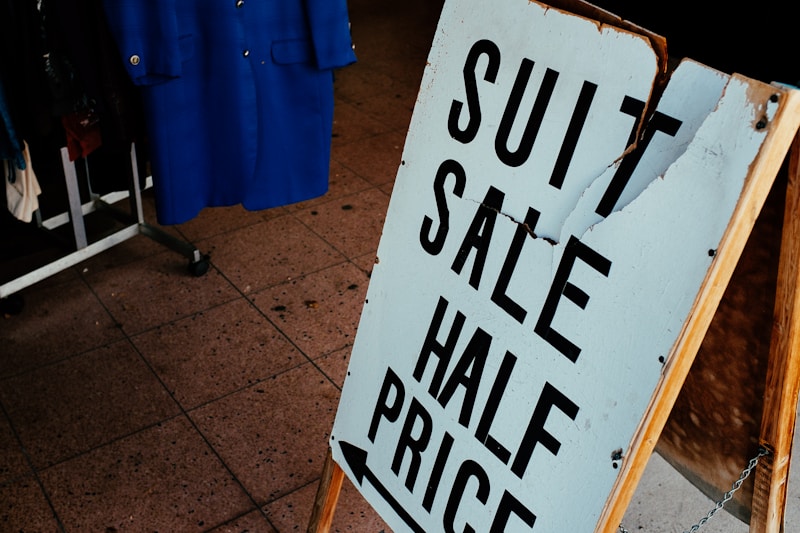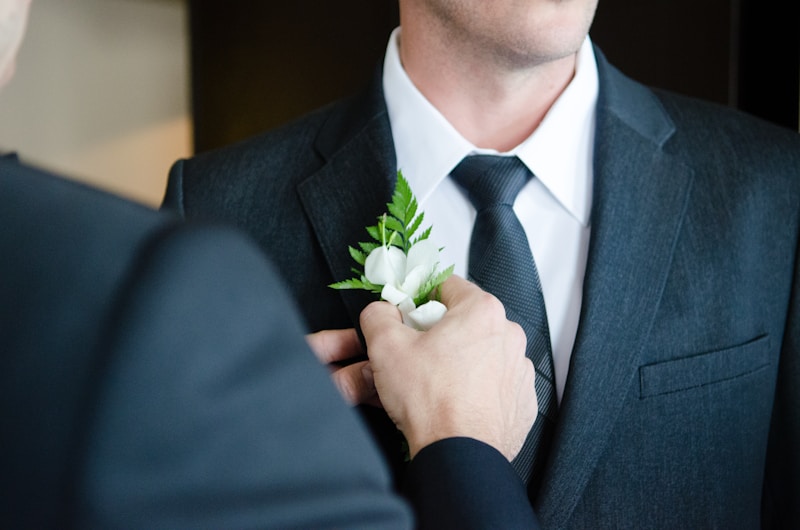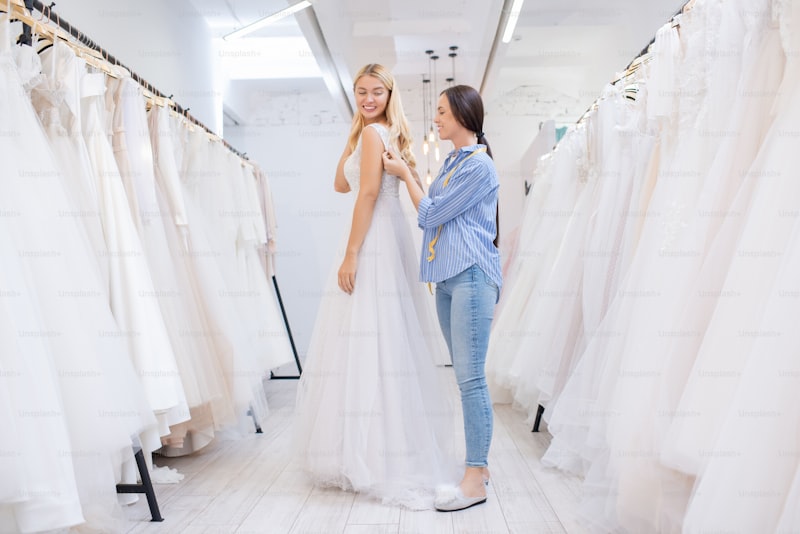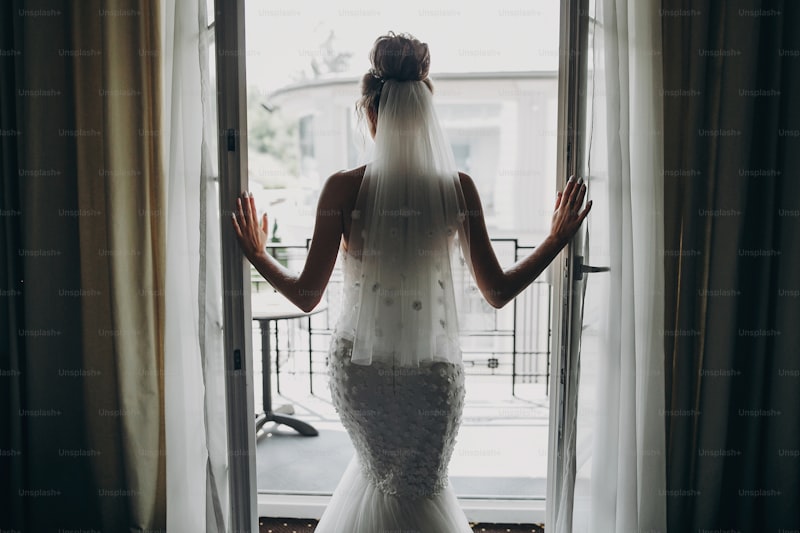Understanding Final Sale Terms for Bridal Wear: What Every Bride Should Know
When planning a wedding, one of the most significant decisions a bride makes is choosing the perfect bridal wear. From stunning gowns to elegant accessories, the bridal outfit sets the tone for the entire celebration. However, unexpected complications can arise when it comes to purchasing these items, particularly concerning final sale terms. This article delves into the intricacies of understanding final sale terms for bridal wear, helping brides navigate this crucial aspect of their wedding planning.What Are Final Sale Terms?Final sale terms refer to the policies established by bridal boutiques and designers regarding the sale of certain items that cannot be returned or exchanged after purchase. These terms are commonly applied to sample sales, clearance items, or customized gowns. It is essential for brides to grasp these policies, as they can profoundly impact the overall wedding budgeting and planning process.Key Components of Final Sale TermsUnderstanding final sale terms involves several key components that every bride should be aware of: Non-Refundable Deposits: Many bridal shops require a deposit when placing a special order. This deposit is often non-refundable, meaning that if a bride changes her mind, she may lose the entire amount. No Exchanges: If a gown is purchased under final sale terms, it typically cannot be exchanged for a different size or style, which can pose a significant risk if the bride misjudges her size or desires a different look later. Altera...
Exchanging Wedding Attire After Purchase: Everything You Need to Know
Understanding the Process of Exchanging Wedding AttirePlanning a wedding can be one of the most exciting yet daunting tasks a couple can undertake. From selecting the perfect venue to picking the right caterers, every detail plays a crucial role in making the day memorable. However, one aspect that often gets overlooked is the purchase of wedding attire. While choosing a wedding dress or tuxedo is exhilarating, what happens if it doesn’t fit, or if your preferences change? In this article, we will delve deeply into the process and considerations for exchanging wedding attire after purchase.Why Would You Want to Exchange Wedding Attire?There are several reasons why couples may want to consider exchanging their wedding attire: Size Issues: Mistakes in measurements can lead to dresses or suits not fitting properly, requiring an exchange. Change in Style: Trends evolve, and what seemed like the perfect choice six months ago might not fit your vision on the wedding day. Fabric or Comfort Concerns: After trying on the outfit at home, you might realize that the fabric is uncomfortable or not suitable for the season. Color Mismatch: Lighting can play tricks; the dress or suit you fell in love with might not match your wedding colors perfectly.What Are the Standard Exchange Policies?It’s vital to understand each retailer's exchange policy when you purchase wedding attire. Below is a table summarizing standard exchange policies to consider:Vendor TypeStandard Exchange Timef...
Comprehensive Guide to Refund Options for Custom Wedding Gowns
When it comes to planning a wedding, one of the most critical decisions for brides is choosing the perfect wedding gown. The emotional significance of a wedding dress makes it a crucial part of any bridal experience. However, along with the excitement of selecting a custom gown comes the potential for confusion regarding refund policies. In this article, we will explore the various refund options for custom wedding gowns, what to consider when making a purchase, and frequently asked questions surrounding this topic.Understanding Custom Wedding GownsCustom wedding gowns are tailored specifically to the bride’s measurements and preferences. Every detail, from fabric to embellishments, is chosen by the bride, making for a unique and personal garment. Nevertheless, the personalized nature of these gowns can complicate refund and return policies, as many designers and boutiques operate under specific guidelines.The Importance of Transparency in Refund PoliciesBefore purchasing a custom wedding gown, it's crucial for brides to understand the refund policies of the store or designer. Many brides mistakenly assume that they can return or exchange a gown that doesn't meet their expectations. Given that custom gowns are made to order, the return options may differ significantly from those of off-the-rack dresses.Common Refund Options for Custom Wedding GownsWhen considering refund options for custom wedding gowns, you will typically encounter a few common policies:Refund PolicyDescript...
Understanding Bridal Gown Return Timeframes: Essential Guide for Brides
Planning a wedding is an exciting but often overwhelming process, and one of the most significant purchases you will make is your bridal gown. As a bride, you want to ensure that your gown is perfect, but you might also have questions about return timeframes. This comprehensive guide will explore the various aspects of bridal gown return policies, including industry standards, what to look for when purchasing, and how to handle situations that might require a return. Why Understanding Return Timeframes is Important Returning a bridal gown can be a complicated process. Every designer, boutique, and retailer has its own return policy, which can cause confusion for brides. Understanding these return timeframes is crucial because wedding planning is often filled with time-sensitive decisions. Knowing how much time you have to return or exchange your gown will help you navigate this important purchase with ease.Typical Bridal Gown Return Policies Retailer TypeStandard Return Timeframe Bridal BoutiquesUsually 14-30 days post-purchase Online RetailersTypically 30-60 days, depending on the gown's condition Custom DesignersReturns usually not accepted; alterations may be necessary Key Factors Influencing Return Timeframes Several factors can influence the return timeframe for your bridal gown. Here are some considerations: Condition of the Gown: Most retailers will only accept returns if the gown is unworn, unaltered, and includes all original tags and packaging. Ty...
Understanding the Impact of Final Sales on Wedding Dress Shopping
IntroductionWedding dress shopping is a significant event for many brides, often marked by excitement, anticipation, and careful planning. In recent years, one factor has caught the attention of shoppers and industry experts alike: the impact of final sales on wedding dress shopping. With numerous designers and boutiques offering significant discounts during these sales, understanding how they influence buying decisions can be pivotal for brides-to-be. This article delves into the repercussions of final sales on wedding dress shopping, highlighting important considerations and insights for prospective brides.The Allure of Final SalesFinal sales are promotional events where items are sold at discounted prices, often with the stipulation that they cannot be returned or exchanged. For brides, this option can be incredibly enticing. Here are a few reasons why:Cost Savings: Weddings can be expensive, and saving money on a wedding dress can significantly alleviate the financial burden. Discounts during final sales often range from 20% to 70%, making it a sensible choice for budget-conscious brides.Opportunity to Buy Designer: Many brides aspire to wear designer dresses on their special day. During final sales, it’s possible to snag a high-end dress for a fraction of its original price, providing brides with the opportunity to wear a label they might otherwise afford only at full price.Limited Inventory: Final sales may feature limited inventory, creating a sense of urgency that can...
Best Practices for Returning Wedding Dresses: A Comprehensive Guide
Returning Wedding Dresses: Understanding the Best PracticesPlanning a wedding involves numerous tasks, from finding the perfect venue to selecting the best wedding dress. Yet, not all wedding dresses end up being a perfect fit for every bride. If you find yourself in a situation where you need to return a wedding dress, understanding the best practices for returning wedding dresses becomes crucial. In this article, we will explore essential tips, timelines, and considerations to make the return process smooth and hassle-free.Why You Might Need to Return a Wedding DressThere can be several reasons for returning a wedding dress. Understanding these can help you prepare better: Fit Issues: The dress may not fit as expected, requiring alterations that may not be feasible. Style Mismatches: After trying it on, the dress might not align with the bride's vision for her wedding. Budget Constraints: Circumstances may change, leading to the decision to return for financial reasons.Understanding Return PoliciesBefore making a purchase, it's essential to be aware of the return policies of the bridal shop or online retailer. These policies can vary widely. Here are some factors to consider:FactorDetailsTime FrameMany retailers have a 30-day return policy, but some can be as short as 7 days or as long as 90 days.Condition of the DressMost retailers require the dress to be in pristine condition, unworn, and with tags still attached.AlterationsUsually, dresses altered in any way cannot be...
Final Sale Implications for Brides: What You Need to Know
Understanding Final Sale Implications for BridesWhen it comes to bridal shopping, one of the most crucial aspects to consider is the return policy of the items you purchase. Many bridal boutiques and online retailers have a "final sale" policy, which can lead to significant implications for brides. This article will explore what final sale means for brides, the potential risks involved, and tips on how to navigate these sales effectively.What Does "Final Sale" Mean?The term "final sale" indicates that once a purchase is made, the item cannot be returned or exchanged for any reason. This policy is particularly common in the bridal industry due to the bespoke nature of bridal attire and accessories. Many wedding dresses and items are made to order or altered specifically for the bride, which complicates the return process.Why are Final Sales Common in Bridal Shopping?There are several reasons why final sale policies are prevalent in the bridal segment: Custom Fit: Most wedding dresses are tailored to fit the bride's specifications, making them unique and unsellable to other customers. Limited Inventory: Bridal boutiques often carry limited stock, and a custom order may take several weeks or even months. High Demand: The wedding industry is competitive, and stores may implement final sale to protect their bottom line from returns.Potential Risks of Final Sale PurchasesWhile final sales may seem appealing due to possible discounts, they carry inherent risks. Here are som...
Navigating the Return Process for Formal Wear: A Comprehensive Guide
Understanding the Return Process for Formal WearWhen purchasing formal wear, whether for a wedding, a corporate event, or a special celebration, the excitement can sometimes be overshadowed by concerns over sizing, fabric comfort, or even the unexpected changes in plans. The return process for formal wear can often seem daunting, but it is essential to understand it for a smooth shopping experience. This article will guide you through the key aspects of navigating returns for formal attire, including tips, common challenges, and best practices.Why Returning Formal Wear Can Be DifferentUnlike casual clothing, formal wear often comes with higher price tags and specific styling requirements. Consequently, the return policies can differ significantly across brands and retailers, making it crucial to understand the nuances involved.Common Reasons for Returning Formal WearBefore delving into the return process, it’s essential to recognize the typical reasons why formal wear might need to be returned. Here are some frequent issues consumers encounter: Size discrepancies Poor fit or uncomfortable fabrics Change of event plans Style not matching expectations Defective merchandiseKey Aspects of the Return ProcessBefore making a purchase, familiarize yourself with the return policy of the retailer. Factors that typically influence the return process include:AspectDetailsReturn WindowMost retailers offer a return window of 30 to 90 days; however, this can vary, especially ...
Understanding Client Rights Regarding Bridal Gown Returns: A Comprehensive Guide
Introduction to Client Rights for Bridal Gown ReturnsWhen it comes to planning a wedding, the last thing any bride wants to deal with is the hassle of returning a bridal gown. However, understanding client rights regarding bridal gown returns is crucial to ensure a smooth experience. Bridal gown purchases carry significant financial implications, often featuring extravagant price tags. It’s essential to be informed about your rights as a consumer to avoid potential pitfalls.The Importance of Knowing Your RightsPurchasing a bridal gown can be one of the most significant financial decisions a bride makes. Knowing client rights regarding returns can empower brides and prevent potential disputes with bridal boutiques. Many brides have questions such as:What are the standard return policies for bridal gowns?Are there specific consumer protection laws related to bridal gown purchases?What should brides do if they receive a defective gown?How can a bride effectively communicate with the bridal shop regarding returns?Standard Return Policies for Bridal GownsBridal gown shops typically have specific return policies that differ from standard clothing stores due to the nature of custom orders and personal fittings. Here is a generic overview of how these policies usually work:Policy TypeDescriptionFinal SaleMany bridal boutiques consider bridal gowns as final sale items, meaning they cannot be returned or exchanged after purchase.Custom OrdersGowns that are customized, such as those tha...
Maximizing Savings: The Ultimate Guide to Stock Clearance and Final Sale Announcements
Understanding Stock Clearance and Final Sale AnnouncementsIn the fast-paced world of retail, stock clearance and final sale announcements play a crucial role in managing inventory and attracting savvy shoppers. These strategies are not merely methods for retailers to eliminate surplus stock; they are key marketing tactics designed to create urgency, drive foot traffic, and ultimately boost sales. In this article, we will explore the significance of these announcements, how they operate, and what shoppers should know to make the most out of these sales events.What is Stock Clearance?Stock clearance refers to the strategy employed by retailers to sell off excess inventory. This can occur at any time of the year, but it is most commonly associated with the end of a season, when new products are set to arrive. Retailers utilize stock clearance to make space on shelves, recover cash flow, and avoid the costs associated with holding onto unsold items. Common methods of stock clearance include: Discount Promotions Bundling Products Flash SalesThe Importance of Final Sale AnnouncementsFinal sale announcements are typically associated with specific items that will not be restocked, often marked as “final sale” to indicate that no returns will be accepted. These announcements are crucial for both consumers and retailers. For shoppers, it presents an opportunity to score significant discounts on items that are unlikely to be available again. For retailers, this strategy aids in clear...
Understanding Hidden Fees on Final Sale Items: What You Need to Know
IntroductionShopping is often a delightful experience, but it can quickly turn sour when hidden fees rear their ugly heads, especially on final sale items. Understanding hidden fees on final sale items can save you money and frustration. In this article, we will delve deep into the world of hidden fees, illuminating their nature and offering practical advice to help you navigate your buying decisions.What Are Hidden Fees?Hidden fees are additional charges that are not clearly disclosed at the time of purchase. These fees can make a seemingly good deal turn into a loss if you're not careful. When it comes to final sale items, these fees can often catch shoppers off guard. Common hidden fees include restocking fees, shipping costs, and various form of taxes that may apply.Final Sale Items: What You Should KnowFinal sale items are typically marked down to encourage quick sales. They often come with the caveat that they cannot be returned or exchanged. While the low price is tempting, understanding the hidden fees associated with these items is crucial.Common Types of Hidden FeesBelow is a table summarizing common hidden fees associated with final sale items:Fee TypeDescriptionRestocking FeesFees charged by retailers if you return an item, even if it's marked as final sale.Shipping CostsUnexpected delivery charges that can add significantly to your total bill.TaxesLocal sales tax that can be applied at checkout, depending on your location.Service FeesFees for processing orders, e...
Choosing the Right Wedding Dress with Return in Mind: A Comprehensive Guide
IntroductionChoosing the perfect wedding dress is one of the most significant decisions a bride will make during the wedding planning process. However, increasingly more brides are considering the possibility of returning their wedding dresses post-ceremony. Choosing the right wedding dress with return in mind is not just about style; it involves practicality, budget considerations, and understanding store policies. In this article, we will provide insights into how to select a wedding dress while keeping the option to return in mind.Understanding Return PoliciesBefore diving into style, it’s crucial to understand the return policies of various bridal shops and online retailers. Many stores have specific guidelines regarding returns and exchanges—especially for wedding dresses. Here are some common factors to consider:FactorDetailsTime FrameMany retailers offer a limited return window, typically ranging from 14 to 30 days after purchase.Condition RequirementsDresses must often be unaltered, unworn, and with the original tags still attached for a return.Restocking FeesSome retailers charge a restocking fee for returned dresses, which can affect the overall cost.Final Sale ItemsBe wary of final sale items, as these cannot be returned under any circumstances.Finding Your StyleWhen selecting a wedding dress, consider your personal style and the wedding’s theme. Here are a few popular wedding dress styles that you might want to contemplate:A-Line: Flattering for most body types.Me...











